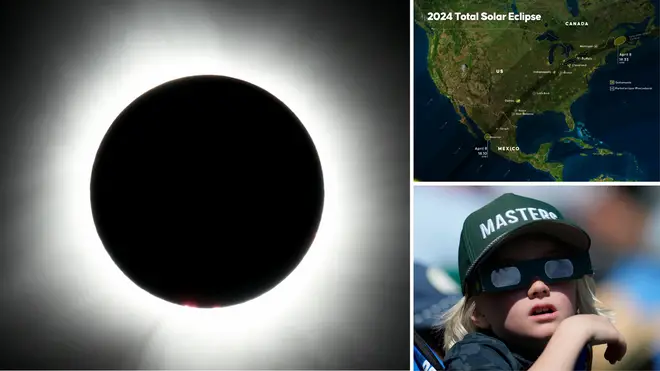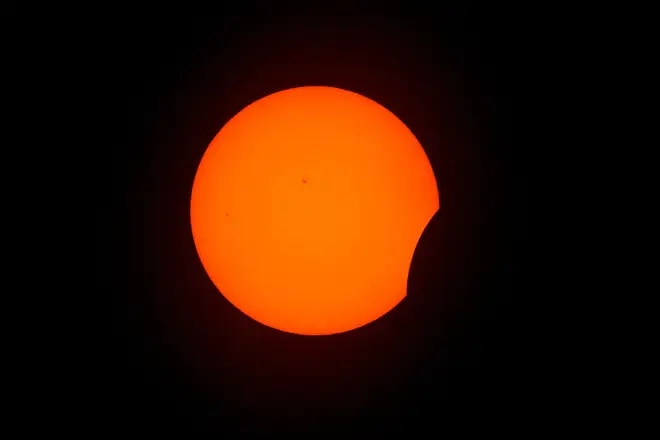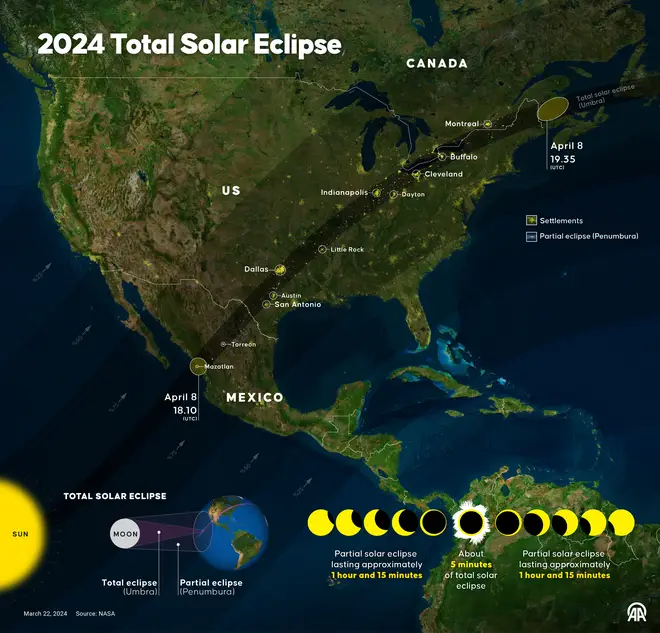
Oli Dugmore 4am - 7am
8 April 2024, 19:24 | Updated: 8 April 2024, 23:55

A total solar eclipse plunged parts of North America into darkness today as millions gathered to watch the rare phenomenon.
A total eclipse occurs when the Moon perfectly blocks the Sun, lasting around four minutes.
Millions gathered across North America and Mexico to catch a glimpse of the eclipse.

Scientists predicted that it would sweep north and east across 13 US states and finish in Canada.
Around 31.5 million people are expected to have seen it in some form, according to the space agency Nasa.
Read More: Millions gather in North America hoping to catch glimpse of total solar eclipse
Nasa will also conduct experiments, including by flying planes and rockets, to study the Sun's atmosphere.
Those who gathered to watch the eclipse were warned to wear special glasses, as it is dangerous to look at the sun with a naked eye, even with regular sunglasses.
Ready to witness a breathtaking celestial event?
— NASA (@NASA) April 8, 2024
Watch the 2024 total solar #eclipse live with us. https://t.co/0dMwJLSBL6
People in the UK aren't quite as lucky, although people in parts of the country will be able to observe a partial eclipse.
Here we look at where you can see it - and why a total solar eclipse is so special.
A solar eclipse is when the moon comes between the sun and the Earth passes. In a total eclipse, the moon casts a shadow on the earth that fully blocks light from the sun.
In a partial eclipse, it blocks some of the light.A total eclipse is quite rare - once every 18 months - because the orbit of the moon is not exactly the same as the sun and the earth.
A partial eclipse usually takes place between two and five times a year.
People living in the north and west of the UK were able to see some of the effects of the eclipse on Monday evening.

But cloudy weather made the eclipse even less visible. And the eclipse was not visible at all from London.
Dr Edward Bloomer, senior astronomer at the Royal Observatory Greenwich, said before the event: "I'm afraid the South and the East are out of luck this time around.
"We won't ourselves get to see anything from the observatory, which we're a bit sad about."